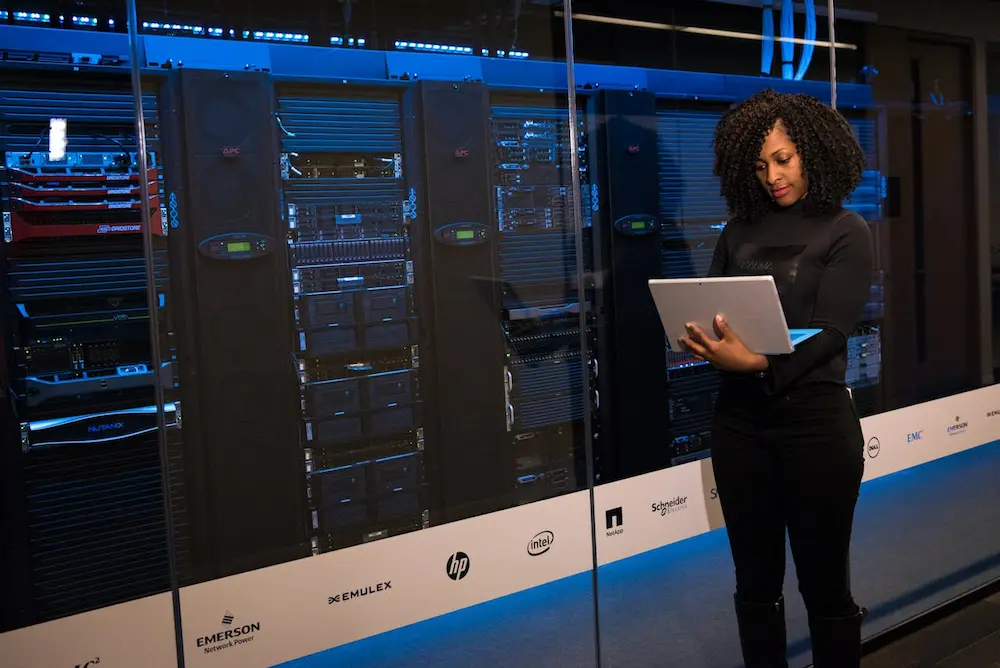In the fast-paced world of technology, where digital transactions occur at lightning speed and data volumes continue to soar, data centers serve as the indispensable nerve centers that power our digital age. From facilitating online transactions to storing vast troves of information, data centers are the beating heart of modern business operations. However, with great power comes great responsibility, and efficient data center operations are paramount for ensuring uninterrupted service delivery and safeguarding against costly downtime.
Understanding Data Center Infrastructure
Before diving into operational strategies, it’s crucial to grasp the foundational elements of data center infrastructure. Data centers typically consist of servers, storage systems, networking equipment, and cooling mechanisms housed within a controlled environment. These facilities range in size from small server rooms to massive warehouse-scale operations. Understanding the layout and components of your data center is essential for effective management and troubleshooting.
Data center infrastructure is often categorized into tiers based on factors such as redundancy, uptime, and fault tolerance. Tier I data centers provide basic infrastructure with minimal redundancy, while Tier IV data centers offer the highest level of availability and fault tolerance. By assessing the requirements of your organization and aligning them with the appropriate tier, you can ensure that your data center meets the necessary performance and reliability standards. For added understanding, make sure to read this guide to data center operations, which can further enhance your knowledge and proficiency in managing your data center effectively. With a solid grasp of data center infrastructure and its categorization into tiers, you’re poised to make informed decisions that optimize performance and reliability for your organization’s needs.
Implementing Robust Monitoring and Management Tools
One of the cornerstones of efficient data center operations is the implementation of robust monitoring and management tools. These tools provide real-time insights into various aspects of data center performance, including server health, network traffic, and environmental conditions. By leveraging advanced monitoring solutions, data center administrators can proactively identify and address issues before they escalate into major problems. Additionally, automation plays a crucial role in streamlining routine tasks and optimizing resource utilization.
Monitoring tools can range from simple server monitoring software to comprehensive data center infrastructure management (DCIM) platforms. These tools offer features such as performance monitoring, capacity planning, and predictive analytics, empowering administrators to make informed decisions and optimize resource allocation. Furthermore, integration with ticketing systems and communication platforms facilitates collaboration among team members and enhances incident response capabilities.
Ensuring High Availability and Disaster Recovery
Maintaining high availability is paramount in data center operations, as downtime can result in significant financial losses and damage to reputation. Redundancy is key to achieving high availability, with redundant power supplies, networking components, and data replication strategies being common practices. Furthermore, implementing robust disaster recovery plans is essential for mitigating the impact of unforeseen events such as natural disasters or cyberattacks. Regular testing and refinement of disaster recovery procedures are critical to ensuring readiness when disaster strikes.
High availability architectures often employ technologies such as load balancing, clustering, and geographically distributed data centers to minimize single points of failure and maximize uptime. Additionally, cloud-based disaster recovery solutions offer scalability and flexibility, allowing organizations to replicate their data and applications across multiple geographic regions.
Optimizing Energy Efficiency
Energy consumption is a significant concern for data center operators, both from an environmental and cost perspective. Optimizing energy efficiency not only reduces operational expenses but also minimizes the carbon footprint of data center operations. Strategies for improving energy efficiency include consolidating servers through virtualization, implementing energy-efficient hardware, and optimizing cooling systems. Additionally, leveraging renewable energy sources can further reduce the environmental impact of data center operations.
Data centers can achieve energy efficiency through various initiatives, such as server consolidation, dynamic power management, and airflow optimization. Virtualization technologies allow multiple virtual machines to run on a single physical server, reducing the overall number of servers required and consequently lowering energy consumption.
Addressing Security Challenges
Data security is a top priority for data center operators, given the sensitive nature of the information they handle. Protecting against external threats such as hackers and malware requires a multi-layered approach, including robust perimeter security measures, intrusion detection systems, and regular security audits. Moreover, insider threats pose a significant risk, making access control and employee training critical components of a comprehensive security strategy. By staying vigilant and proactive, data center operators can minimize the risk of security breaches and safeguard sensitive data.
Embracing Emerging Technologies
As technology continues to evolve, data center operators must stay abreast of emerging trends and innovations to remain competitive. Embracing technologies such as artificial intelligence, machine learning, and edge computing can enhance the efficiency and agility of data center operations. These technologies enable predictive analytics, autonomous resource allocation, and distributed processing, paving the way for more resilient and responsive data center environments. By embracing innovation, organizations can future-proof their data center operations and stay ahead of the curve in an ever-changing landscape.

In conclusion, efficient data center operations are essential for maintaining the reliability, performance, and security of modern IT infrastructure. By understanding the underlying infrastructure, implementing robust monitoring tools, ensuring high availability and disaster recovery preparedness, optimizing energy efficiency, addressing security challenges, and embracing emerging technologies, organizations can keep their data center systems running smoothly in the face of evolving demands and challenges.









